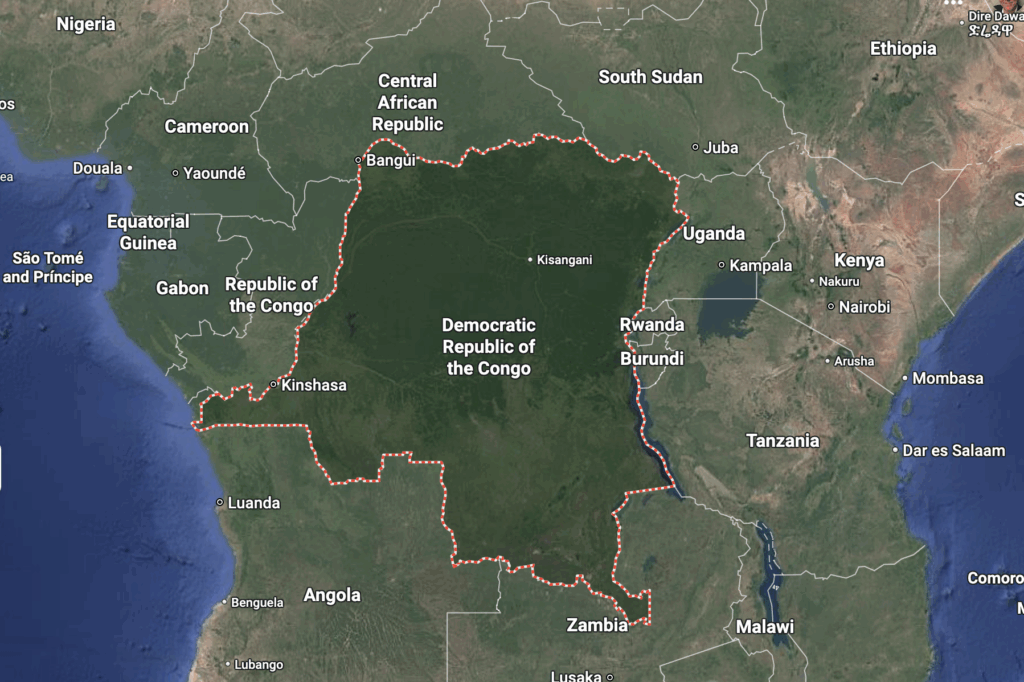Start your day with intelligence. Get The OODA Daily Pulse.
Start your day with intelligence. Get The OODA Daily Pulse.
The Democratic Republic of the Congo (DRC) is a country located in Central Africa, known for its vast natural resources, including significant deposits of minerals such as cobalt and coltan. The DRC is currently considering extending its export ban on cobalt, a critical component in battery production, which could have global economic implications. The country has been plagued by conflict and instability, with recent violence linked to Islamic State-affiliated rebels resulting in the deaths of dozens of civilians in the eastern regions.

The crisis in the eastern Democratic Republic of the Congo (DRC) centers on a long-running conflict that escalated significantly in 2022 with the resurgence of the M23 rebel group, a Tutsi-led militia accused of receiving substantial military backing from Rwanda, including troops, weapons, and direct command influence.
By early 2025, the fighting had intensified, leading to M23’s capture of key cities like Goma (a provincial capital) and Bukavu, displacing over 7 million people and causing widespread atrocities, including the killing of at least 319 civilians by M23 in July 2025 alone. The conflict involves over 100 armed groups, but M23’s advances have been the most prominent, driven by ethnic tensions, resource control, and regional power struggles, with Rwanda denying involvement while accusing the DRC of supporting anti-Rwandan militias like the FDLR.
A preliminary ceasefire was signed in July 2025 between the DRC and M23, but violence persisted, with armed militias killing hundreds more in August and the situation described as entering a dangerous new phase amid failed peace efforts.
The region’s vast mineral wealth, including cobalt, copper, and coltan essential for global tech and green energy fuels the instability, as control over mining areas enables smuggling and funding for armed actors, exacerbating a humanitarian emergency with food insecurity and mass displacement.
Russia’s role in the crisis has grown as a supporter of the DRC government, positioning itself as a counterweight to Western influence through diplomatic, military, and opportunistic engagements. Moscow has maintained positive bilateral relations with Kinshasa since the post-Cold War era, including a military cooperation agreement that facilitates arms supplies and training.
Russian officials have called for dialogue to resolve the violence, condemned Western silence on captured European mercenaries fighting for the DRC, and advocated against escalation, while the DRC has expressed appreciation for Russia’s stance on the eastern conflict.
More controversially, the rebranded Wagner Group (now Africa Corps) has eyed opportunities in the conflict-torn region, potentially offering mercenary services to the DRC government in exchange for resource concessions, building on Russia’s history of illicit arms support in past Congo wars and its broader strategy to intervene where Western powers hesitate.
This approach allows Russia to expand its footprint in Africa, securing mining interests and geopolitical leverage without direct frontline involvement.China’s involvement is predominantly economic, focused on dominating the DRC’s critical mineral sector, which indirectly intersects with the conflict despite Beijing’s efforts to stay neutral politically. Chinese state-owned enterprises control about 80% of the DRC’s cobalt output and a majority of foreign-owned copper and uranium mines, stemming from a 2008 infrastructure-for-minerals deal that has funneled billions in investments into roads, hospitals, and mining operations, primarily in the southern regions away from the eastern hotspots.
While China has been accused of illegal mining activities, such as the arrest of 17 nationals in December 2024 for gold operations, its presence is often viewed as a stabilizing force through job creation and development, though it has fueled US-China rivalry over supply chains vital for batteries and electronics.
Beijing has avoided deep entanglement in the fighting, pledging infrastructure and security support without military intervention, but the conflict’s potential to disrupt mineral exports poses risks to China’s global ambitions in electric vehicles and renewables.
The United States has taken a more active diplomatic and strategic role in 2025, emphasizing peace brokering to stabilize the region, secure mineral access, and counter rivals like China and Russia. Under the Trump administration, the US spearheaded a controversial DRC-Rwanda peace agreement signed on June 27, 2025, in Washington, which included ceasefire provisions, refugee repatriation (over 500 Rwandans returned by August), and efforts to diversify US critical mineral supplies away from Chinese dominance.
Washington has renewed sanctions on the DRC regime through UN mechanisms, condemned M23 offensives, and pushed for greater US company involvement in mining to challenge China’s hold, while providing humanitarian aid via UNHCR (requesting $312.9 million in 2025) and advocating for civilian protection amid rising insecurity.
Critics argue the US approach prioritizes economic interests over comprehensive conflict resolution, but it represents a shift toward deeper engagement in the Great Lakes region’s mineral-rich dynamics.
Political dynamics in the DRC are complex, with former President Joseph Kabila recently returning to the country amid accusations of treason and war crimes linked to his alleged support of M23 rebels. The Senate has voted to lift Kabila’s immunity, potentially paving the way for legal proceedings against him. Efforts towards peace are ongoing, as evidenced by a draft peace proposal between Rwanda and the DRC aimed at resolving conflicts in the region. Additionally, Qatar has announced the resumption of peace talks between the Congolese government and the M23 movement.
Environmental challenges also confront the DRC, with heavy floods recently devastating several villages and resulting in over 100 fatalities. The mining sector faces safety issues, highlighted by a recent incident where 12 miners died following a mine collapse in North Kivu province. Despite these challenges, international efforts continue to stabilize and develop the region through diplomatic and humanitarian initiatives.